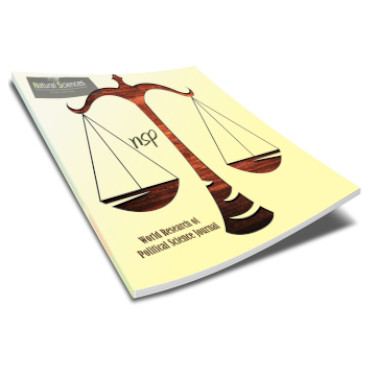
The World Research of Political Science Journal
Abstract
The political change that took place in 1947 began to move with the existing social structure on the basis of give and take. The new institutions and the new leadership offered economic opportunity, administrative patronage, and positions of power which drew the articulate sections of society into the modernist network. Even at this stage the caste associations and federation had the less pressing role and the upper tiers of each of the rival chains were recruited into politics and carried the whole network with them. It increased the importance of individuals and leadership took on a more positive note. But this all was limited to the leading two or three castes – well to do, educated and generally upper caste. The democratic experience, with intensely contested local, state and national elections, have socialised the Indians across the traditional divides. Likewise Nehru’s concept of modernisation of Indian economy became sophisticated with highly vulnerable to disruption. The economic optimism which involved advances and hope now began to give way to serious doubts. In post-Nehru phase it was clear that the system which had seemed hitherto be sailing in tranquil waters, had entered a turbulent sea. The changed socio-economic position of India demanded a new type of leadership. Now, the social and economic cleavages that contained at lower level for so long tended to gravitate upward toward the policy process. And so this is not only the case of India but in most countries who obtained independence from colonial masters was bound to follow the prevailing traditional breakup of socio-political set up. Slow but gradual ups and down in daily life changed their attitude to political issues leading to an ultimate visible change in political framework itself. This India centered study will help in understanding the shift of political paradigms from traditional to modern and structure an effective solution to address the present ills.
Recommended Citation
Singh, Rajkumar
(2018)
"The Indian Political Paradigms across Traditional Divides: An Evaluation,"
The World Research of Political Science Journal: Vol. 1:
Iss.
1, Article 4.
Available at:
https://digitalcommons.aaru.edu.jo/wrpsj/vol1/iss1/4

